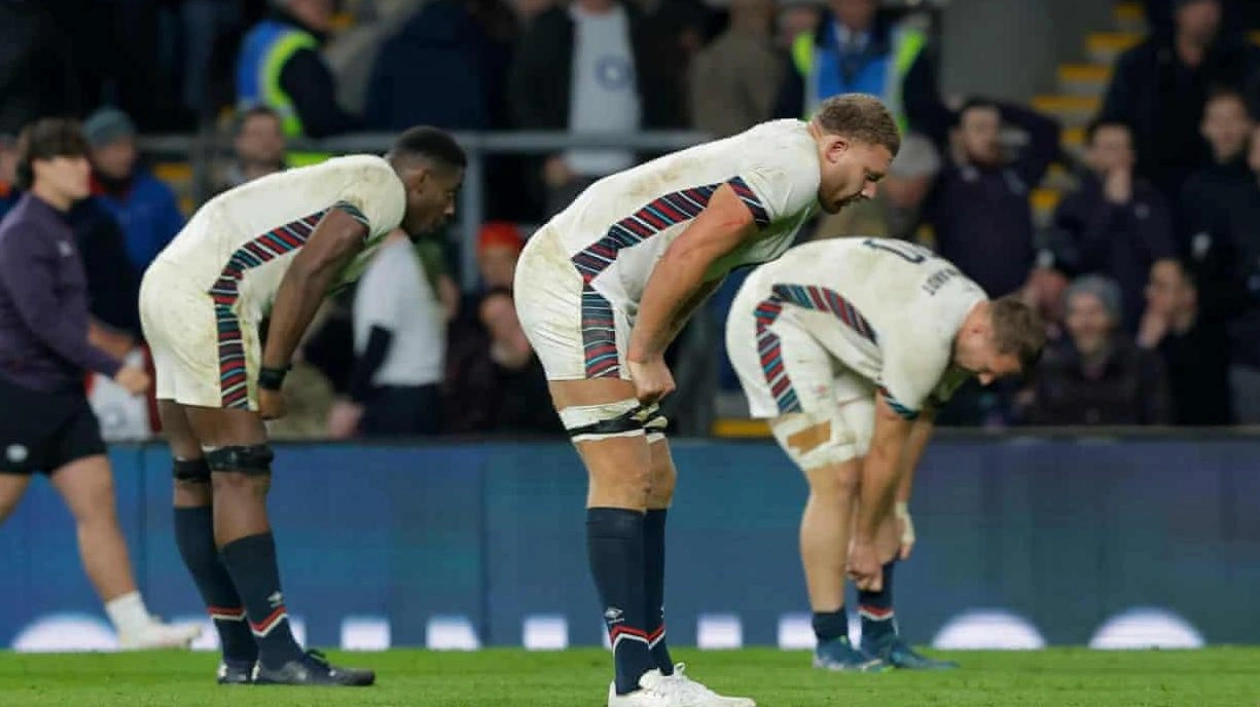One of the greatest Wallaby Test victories in history has left England in a predicament of their own making. Clearly, Australia deserves immense credit for their spectacular performance on Saturday, culminating in a record number of points scored in this fixture at Twickenham. For the home side, however, their inability to close out significant games is increasingly under the microscope. Scoring five tries and 37 points should be sufficient to win any Test match. Yet, only last March, England scored 31 points in Lyon and still lost to France. Another troubling pattern is emerging, this time concerning their defensive solidity. While this makes for thrilling entertainment for neutrals, it is less so for England fans who are left pulling out their remaining hair.
Apart from 35 missed tackles in 80 minutes, issues with bench efficiency, the scrum, another severe injury to their best back-rower, a captain not on the field when it matters most, and a head coach's unwavering faith in a gameplan that repeatedly backfires, what else do England need to worry about? Not much, really, just the world champion Springboks who are set to arrive this Saturday. A backs-to-the-wall mindset has served England well in the past and could do so again. However, this also underscores the Dr Jekyll and Mr Hyde nature of their performances. Generally, their execution improves when the game is at its simplest. The more complex they make it, the less control they exert. Yet, they remain committed to a method that gives skilled opponents more than half a chance. What if England keeps losing not because they are not adhering closely enough to their system, as Steve Borthwick believes, but because, deep down, they fear the system itself is flawed?
How else can one rationalize the confused mindset that cost England so dearly again? As the Wallabies thrillingly demonstrated, there is value in playing boldly, offloading with precision, and not settling for the orthodox. But you still need to think clearly, and lately, Borthwick's England has been experiencing far too many mental lapses. They play when they're down but not when they're up. And when they're up, they don't quite know how to finish. This week's classic example was the ill-fated midfield foray—with six minutes left and England leading 30-28—which ended with George Ford's attempted pass being knocked down by a charging Ollie Lawrence, providing the turnover from which Andrew Kellaway scored at the other end. As Borthwick later muttered: “What is the decision-making process? That's a question I will be asking the players.”
Increasingly, this points to a more fundamental issue: are the reshuffled coaching staff and players entirely on the same wavelength? Individuals previously punished for sitting back clearly felt they had to keep playing. Once again, Ford was at fly-half, rather than the excellent Marcus Smith, who had been moved back to 15. Ford was meant to bring last-quarter calm and order. Instead, for the second successive week, the switch had the opposite effect. So, hello darkness, my old friend. England is not maximizing the ability at their disposal, their progress is stalling, and dressing-room confidence is in danger of eroding. With six losses in their last eight Tests, England's winter could now get very messy. The 34-year-old Jamie George has been a fantastic servant but looks increasingly in need of a sabbatical. Tom Curry also needs ample time to recover properly from his second concussion in two months. The midfield balance still feels off, and Joe Marler has declined Borthwick's request to make himself available for one last stand against South Africa. The Springbok Bomb Squad will once again be salivating.
Beyond that, with the Japan game largely a box-ticking exercise, lies a Six Nations opener in Dublin followed by a home game against France. What if England stumbles out of that having lost nine of their last 12 games and resigned to another lowly Six Nations finish? The Rugby Football Union can ill afford to pay off another head coach, but equally, its business model is predicated on the national men's side winning consistently. You have to hand it to Australia and Joe Schmidt, though. They were tactically astute, demonstrated precisely how to unpick a blitz defense, and have not played so well in years. Joseph-Aukuso Suaalii had a world-class debut, and the pace and purpose of Len Ikitau, Tom Wright, and the 20-year-old match-winner Max Jorgensen brilliantly complemented the hard running of Rob Valetini, Harry Wilson, and Fraser McReight.
This has certainly raised the stakes for next summer's British & Irish Lions tour to Australia, which, at this rate, may end up featuring fewer Englishmen than expected. There are plenty of talented individuals and impressive human beings in their ranks, but frustratingly, the orchestra is still not in total harmony. England, to adapt the great Eric Morecambe, are playing most of the right notes, just not necessarily in the right order.
Source link: https://www.theguardian.com






